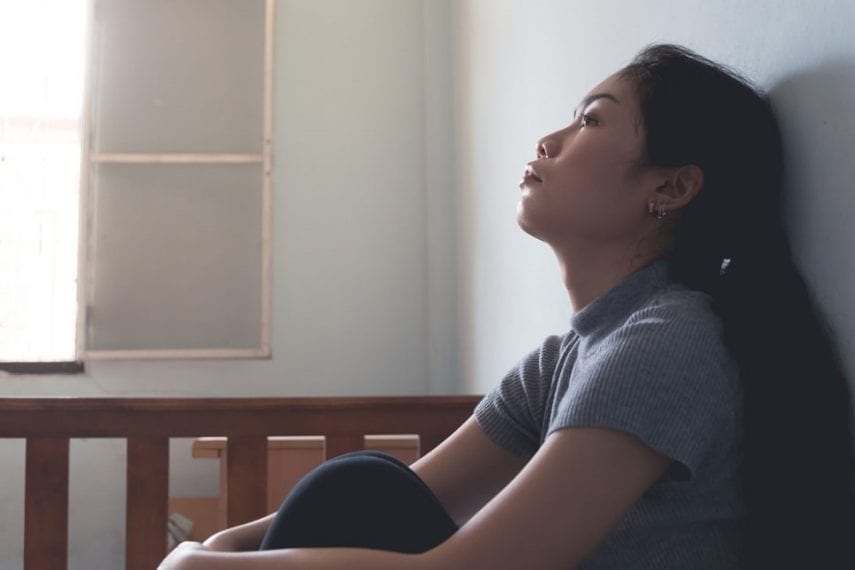What to Do When Your Partner Doesn’t Understand Your Postpartum Depression

It’s a confusing combination to grasp: the expected joys of parenthood together with the deep pain and defeat of postpartum depression. And when your partner doesn’t understand, it can feel like added weight to your already heavy burden. But postpartum depression is not a shameful experience; it is a real mental health disorder that calls for urgent clinical care. Take steps toward understanding together when you take steps toward treatment.
While your husband or your partner has probably recognized that things have been really hard around the house lately, he may not understand why. When Paul’s wife, Leah, started showing signs of postpartum depression, his first thought was, “What did I do?” But it was hard enough for her to understand what was going on with her thoughts and emotions—and even harder to help him understand. Leah’s therapist insisted that her optimal path to recovery would be one she and Paul navigate together.
So, Leah brought him with her to the next therapy appointment. They found a friend to look after the baby for a couple of hours, and they headed into the appointment, not knowing at all what to expect. Leah discovered that, although she’d been feeling alone, Paul really did want to empathize and to help; he just didn’t know how. And Paul was relieved to know that there are things he can do, steps they can take forward to cope with the stress of parenthood and help Leah progress toward a healthy mental balance again. When your partner doesn’t understand your postpartum depression, it’s time to bridge the gap with real building blocks for treatment and recovery.
When Your Partner Doesn’t Understand, Don’t Feel Ashamed of Postpartum Depression
There is no shame in struggling through a depression that you cannot control. And there is no shame in prioritizing your mental health and healing. You need care just as your baby needs care. Together with your partner, you can learn to accept the realities of postpartum depression, what it means for your family right now, and what you can do about it.
It is not helpful to apply guilt and blame on top of an already challenging condition such as postpartum depression. This is especially true because depression tends to inflame and deepen under that kind of pressure. Not to mention that you may already be at risk of self-harming behaviors, contemplating harm to others, and suicidal thoughts and inclinations. It is time to turn the tables in a positive direction with real help for your serious mood disorder.
Yes, it can be even more difficult to overcome the hurdles when your partner doesn’t understand your postpartum depression. And the responsibilities of loving and caring for your child will not go away. But the two of you don’t have to be alone to suffer in strained desperation. Just as Leah and Paul needed an outside boost in perspective to bring them to the same page, you can reach for compassionate professional assistance in navigating parenthood and recovery simultaneously.
Call for a Free Confidential Assessment.
877-727-4343Plan for Healing Next Steps Together in Postpartum Depression Treatment
It isn’t just about bringing your partner to finally understand what’s really going on in your experience. That level of understanding is just one critical step in the healing process. The most powerful leg of the journey involves real, professional treatment for a real psychiatric disorder that has been weighing you and your life down. And your healing potential is ultimately more hopeful with your partner and your family at your side.
Both the emerging understanding and the action-oriented healing can unfold in one place: In a comprehensive treatment center, clinicians understand that it is difficult to accept and embrace the immediate challenges of postpartum depression for you and your partner. Just as importantly, they know what really works to unwind your painful symptoms and to build a healing program moving forward that can integrate with parenthood and your partnership alike.
If you’re feeling afraid and lost—in your emotional pain and in the disconnection between you and your partner—it’s enough just to know that there are real solutions to lean on. And it may be enough to share that encouraging truth with your partner so you can reach out for help and clarity sooner rather than later. The way forward does start with that one step. And, as overwhelming as it all feels right now, it’s okay to take it one step at a time. You’ll soon find yourselves in sync and in hope as your healing unfolds.
Bridges to Recovery offers comprehensive residential treatment for people struggling with mental health disorders as well as process addictions. Contact us to learn more about our renowned Los Angeles programs and how we can help you or your loved one start the journey toward healing.






